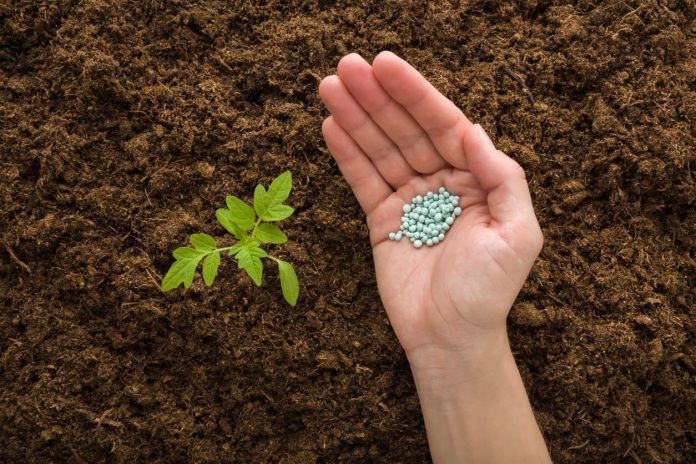The worldwide mission to meet the ever-increasing demand for food is inextricably linked to the vitality of our soils, the advancements in our farming methods, and the quality of our environment. Recognizing the importance of fertilizer naturally becomes essential in this global pursuit.
As the world’s population grows, more resources are needed. The farming community navigates a complex equilibrium. Preserving this balance requires combining age-old wisdom with modern science, tradition with innovation, and sustainability with productivity.
The Evolution of Fertilizers
Fertilizers have emerged as the mainstay of this endeavor. Their evolution over the ages, from simple organic mixtures to scientifically designed products, affirms humanity’s commitment to adapt, learn, and grow. This journey reflects the importance of fertilizer naturally in enhancing agricultural productivity.
In every sprinkle of these nutrient-rich mixtures lies the potential for a seed to become a plant, of a farm to feed a village, and the know-how to sustain generations. Fertilizers not only feed plants; they nourish hope, growth, and the promise of a well-fed future.
ICL Group: A Pioneer in Next-Gen Fertilizer Solutions
ICL Group, a global specialty minerals company, is an important innovator in the realm of fertilizer technology. Their footprint, spanning multiple countries, highlights their commitment to bridging the divide between age-old agricultural practices and modern technological advancements.
As pioneers in the field, their approach is holistic: they manufacture more than just a one-size-fits-all fertilizer, they craft solutions tailored to the unique needs of varied terrains, climates, and crops.
Bridging Ancient Wisdom With Tech Advances
Their line of products and services goes beyond traditional offerings. ICL’s dedication to scientific research and continuous improvement has resulted in the development of revolutionary products like eqo.s, a controlled-release fertilizer with a biodegradable coating, and other soil enhancers.
This relentless drive towards excellence, combined with their adaptability to the changing demands of the agricultural landscape, solidifies ICL Group’s position as the preferred partner for forward-thinking farmers worldwide.
Understanding Fertilizers and Their Importance
Fertilizers, at their core, are substances designed to enhance the nutrient profile of soil, thus amplifying its capacity to support robust plant growth. Their primary components, known as the big three, are nitrogen (N), phosphorus (P), and potassium (K).
These elements are essential in fostering the rapid and healthy growth of plants, ensuring that they receive the nourishment they need to thrive. Combined with strategies like efficient irrigation and the use of quality seeds, fertilizers play a vital role in maximizing crop yields.
As we delve deeper, the importance of fertilizers naturally stands out, especially when considering their role in supplying essential nutrients.
Beyond the Basics: The science and art of plant nourishment
However, the science of fertilization extends beyond just these three core elements. Crafting the perfect fertilizer blend is an art backed by science. Plants need a combination of 17 essential nutrients. This spectrum spans from widely recognized macronutrients as mentioned above, to trace elements like zinc and copper.
These nutrients are the ‘secret sauce’, aiding in everything from rooting and stem growth to the gleam in leaves and the blossoming of flowers. It’s this intricate interplay of nutrients that ensures our green companions not only live but thrive, making for generous and healthy harvests that play such a crucial role in feeding our world.
AgTech, Fertilizers, and Precision Farming
In the rapidly evolving sector of agriculture known as, AgTech, or agricultural technology; the power of technology is harnessed to transform traditional farming into a precision-oriented venture.
It’s no longer about just planting seeds and hoping for the best; it’s about utilizing advanced tools and data analytics for informed decisions every step of the way. Farmers are now equipped with the likes of drones which provide aerial imagery, sensors that monitor soil moisture, and sophisticated software that predicts weather patterns.
This rich array of technological advancements enables farmers to be even more proactive, ensuring that crops get the right care at the right time.
Tailored Fertilization
Precision farming comports perfectly with the concept of tailored fertilization. By using real-time data, farmers can pinpoint exactly when, where, and how much fertilizer to apply, ensuring optimal nutrient uptake by crops as well as the sustainable use of fertilizers. This targeted approach not only enhances crop yield but also reduces wastage and minimizes environmental impacts.
Fertilizers, when used in tandem with the insights provided by AgTech, offer a future where farming is both efficient and sustainable, respecting the delicate balance of our ecosystems while meeting the increasing food demands of our global population.
Environmental and Economic Implications
The decisions made in fields between fertilizers and the environment are intricate, reverberating in ecosystems far and wide. The judicious and sustainable use of fertilizers is paramount not only for immediate crop yields, but also for the long-term health of the soil, water resources, and surrounding environs. By understanding the importance of fertilizer naturally, we can ensure that our agricultural strategies are sustainable and beneficial for both the environment and global economies.
The right balance enhances soil structure, promotes microbial diversity, and helps in carbon sequestration, making agriculture a potential ally in combating climate change. As stewards of the land, farmers, with the aid of technology and knowledge, can help ensure that their practices are sustainable and contribute to our planet Earth.
From Profitability For Farmers To Global Agricultural Powerhouses
On the economic front, optimized fertilizer use is palpable. For farmers, efficiency translates to reduced input costs and higher yields, boosting profitability in an industry often marred by thin margins. These financial gains can bring other socio-economic benefits, such as rural employment and community development.
At a macro level, nations that harness balanced fertilization can enhance food security, reduce dependence on imports, and even position themselves as agricultural powerhouses in global markets.
In essence, the thoughtful application of fertilizers can be the link that joins environmental well-being with economic prosperity.
Conclusion
As we peer into the horizon, the future of fertilizers looks promising. Fertilizers, symbolizing humanity’s perpetual quest to sustain life, epitomize our commitment to address pressing global concerns: changing climate patterns, soil degradation, and food security.
Continued research points towards biofertilizers and sustainable solutions that bind agricultural wisdom with pioneering AgTech solutions. Companies like ICL Group embody this synthesis and help lead the way in optimizing our balance with nature.
In this evolving narrative, it’s not just about the nutrients enriching our soils but the marriage of tradition and technology, ensuring our fields remain fertile and our future food secure. As we harness these advancements, we reaffirm our resolve to nurture the earth, aiming for a world where agriculture thrives sustainably, driven by innovation and respect for the planet.




































